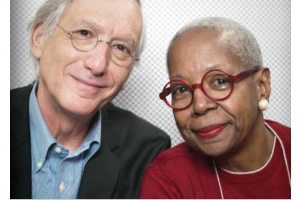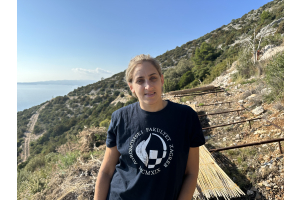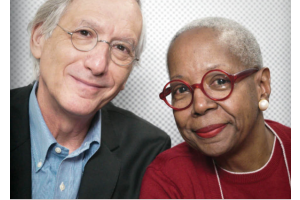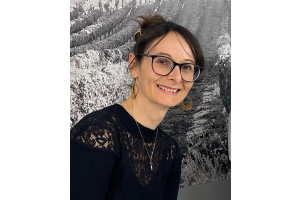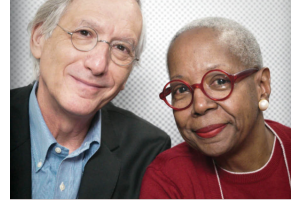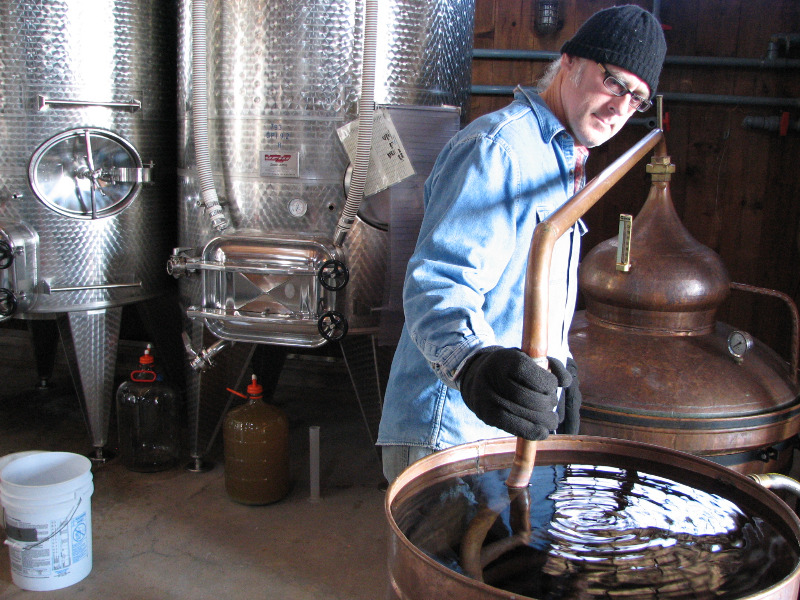
Barbara Shinn was an artist and David Page a chef when they first moved from the West Coast to New York in the 1990s. Their first venture upon arriving was to open Home, a farm-to-table restaurant in the West Village. In 1998 they bought Tuthill Farm, planting the first vines in 2000 with the first wines arriving with the 2002 vintage. Prior to starting the winery neither had ever grown grapes or made wine before.
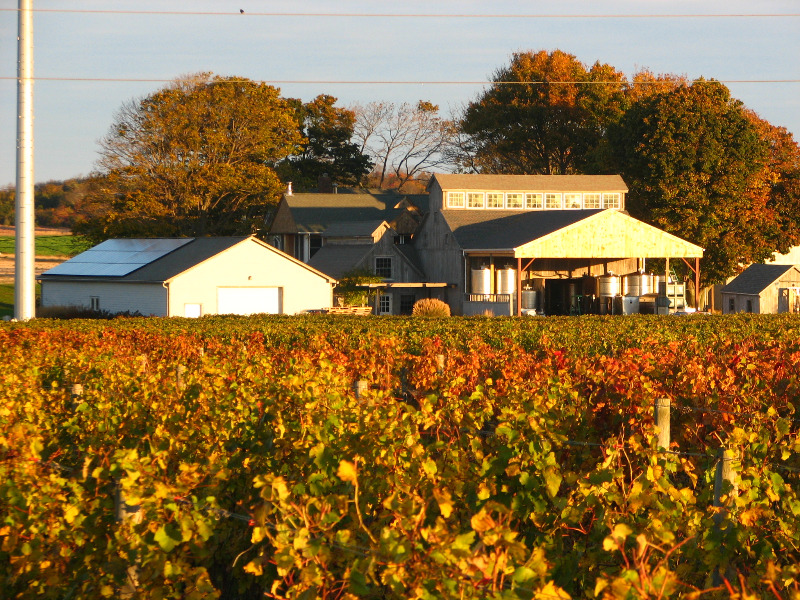
New York Times wine critic Eric Asimov is a fan, saying of the wines: "They were simply delicious, the sort of wines I’d be delighted to open for dinner at any time."
Grape Collective talks to Barbara and David about their passion for biodynamic winemaking and the evolution of Long Island wine.
Christopher Barnes: Barbara, David tell us about the history of the estate.
David Page: Barbara and I would find ourselves driving up and down Oregon Road in the '90s and in 1998 this property came up for sale and we immediately fell in love with it. The land had been farmed in grasses. The soils here are sandy loam, they're underlain with gravel and rock. They make a perfect growing environment for the Vinifera, our grape varieties that we grow here. We grow Cabernet Sauvignon, Merlot, Cabernet Franc, Petit Verdot, Malbec. We grow Sauvignon Blanc and Pinot Blanc and Semillon, all of which have adapted really well to this site.
It's a cool weather climate with maritime effect, really amazing growing conditions. We're frost free in the spring and in the autumn season.
Barbara Shinn: Until last night.
David Page: Until last night, well this gives our vines a chance to rest over the winter. Hibernate.
Barbara Shinn: It's November now so we're finished harvesting. When frost happens in a vineyard, the leaves immediately turn brown and start to fall off and the vines go into dormancy so it's kind of interesting. You're getting to see the vineyard right after the very first frost of the season.
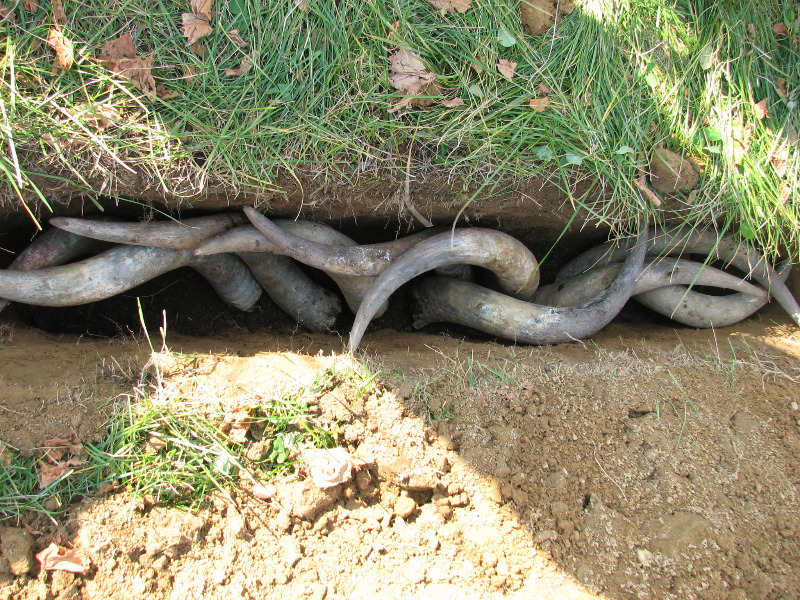
Talk a little bit about Long Island wines. How have the wines here evolved over time?
Barbara Shinn: The wines here on Long Island have evolved beautifully over the 43 years that wines have been grown out here in this viticultural area. We are in a cool weather climate which is such an opportunistic climate to grow wine in. The wines retain their acid. We have a very long growing season so the vines start to grow in May and we're not harvesting until September and October. We actually have very well-balanced ripeness that happens both in the vineyard and, of course, then with the resulting wines in the winery.
I think what we're seeing now on the North Fork of Long Island is we're getting so much more talent here. The winemaking's getting better, the viticultural management is getting better and here at Shinn Estate Vineyards we are able to really focus on holistic means in the vineyard. We don't use any herbicides. We don't use any insect control other than beneficial insect habitat here. We have all natural soil amendments. We use fish and seaweed and peanut shells, compost on our soil and we produce natural wines here. It's all natural winemaking in the vineyard. I think that is the biggest evolution most recently in this region. Being able to farm holistically.
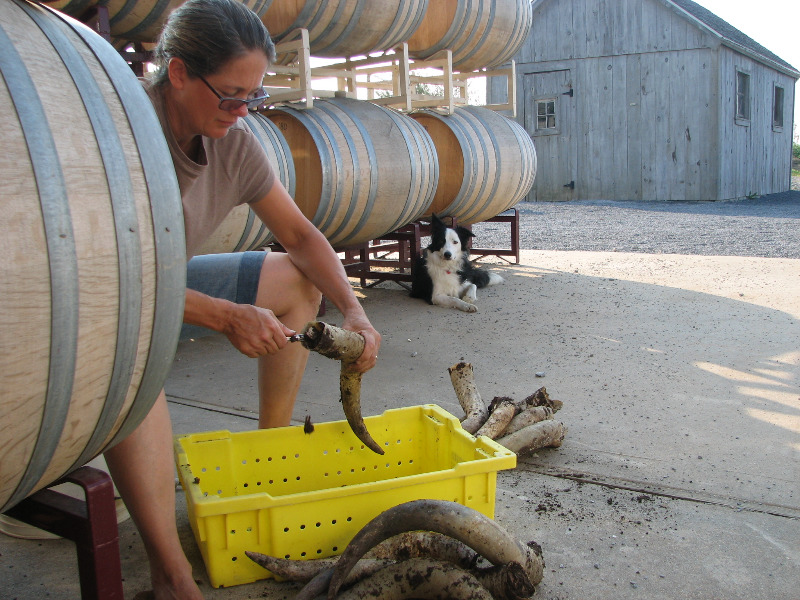
(Photo left Barbara Shinn working on a biodynamic preparation)
You guys are known for being at the farthest spectrum of organic in the area.
Barbara Shinn:Yes.
David Page: We are, yes.
How did that evolve? How did the process of becoming organic evolve and how are other wineries in the region moving in that direction?
David Page: From the first day that we started growing wine here we realized that we didn't want to be around pesticides that would be harmful to us or to our farm workers so we looked for, and found, solutions. We're growing our wine here in a much more holistic way than we ever imagined we'd be able to using biodynamic techniques. Sustainable techniques. The region has developed from being conventionally farmed to now being ... more than half of the acreage is now under the sustainable winemaking program here which has a very high standard for growing wine. We're finding that, through this process, not only are we safer but our wines are much better. And better for us.
Barbara Shinn: I think we've seen huge evolution just in the vineyard. Also as far as it becoming so much more of an evolved and complete ecosystem which we find really interesting and to have that actually as our everyday working environment. Purely, just the amount of animals, you know wild creatures that live in our vineyard and the beneficial insect habitat that we have here really affect the way we work and affect the type of wine that we're able to produce and really, in a very interesting sense, bring peace to the farm. Which we never really suspected would happen but there actually is this really wonderful sense of serenity that happens on a farm once you allow this outside ecosystem to come in and then actually have your farm evolve into that natural ecosystem and become part of that. Then the wines become part of it too.

(Photo right David Page)
Was this a process that happened over time or was there a moment when you said we need to embrace this fully and just do it? How did that work in terms of the organics?
David Page:We learned how to farm sustainably and how to farm biodynamically over a long period of time. That learning will never cease, we're always learning new things. We're being taught by our vineyard, by our land. By this ecosystem that's been created here, how to farm. We listen to our farm very carefully. The beauty of what happens here in the vineyard is what allows us then, in the winery, to create wines that don't have to be made. You know? I'm the winemaker here but I don't like having to make wines. Making wines is a process by which you add ingredients and you manipulate flavors. Our wines are made naturally. Without additives. The yeast that ferments our wines is the yeast that comes from our vineyard's soils. We're not having to add acids or sugars or coloring agents or enzymes or tannins. We're making our wines with the beautiful fruit that the earth here provides.
Talk a little bit about vintage variation. How much can the vintages change from year to year, both in terms of how the wines taste and also in terms of the kind of yields and complexities you have in making the wines.
Barbara Shinn: Vintage variation is a very interesting thing and it's something that we embrace and in a cool weather region, that we're in, you are going to get vintage variation and there's a certain amount of surrender that you have to that. Not surrender in that, oh, I give up. But it's a certain amount of surrender in the exquisiteness of that and embracing it. In a cool year where it might not be so sunny you're going to get wines that have maybe a lighter profile. Might be, perhaps, a little bit softer on the palate. Then you have seasons that are hot and dry and you just have these wines with a lot more concentration. Is one better than the other? Absolutely not. It's very interesting going back and tasting 16 vintages of our wine because many times you go back and you taste a wine from a cooler year and that's a wine that's aged beautifully. Even more so than wines that are, right off the bat, you think are more complex right when they're finished being fermented.
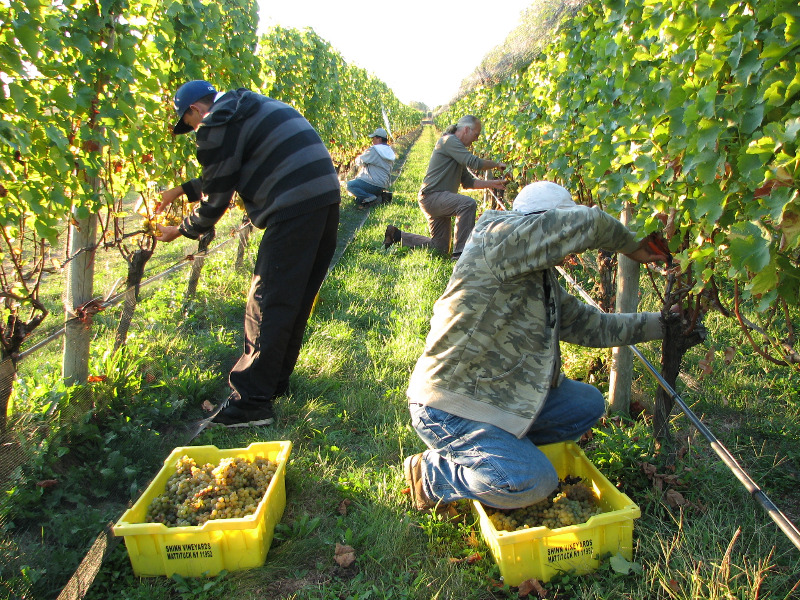
Vintage variation, it's something that we embrace here. David allows the wine to become what it wants to become in the winery. You're going to have vintage variation in that respect no matter what because you're allowing the wine to, sort of, make itself in the winery. If it wants to ferment warm it will, cooler it will, quickly, slowly. We allow these wines to express themselves and become, sort of, what they're destined to be.
Talk a little bit about the types of grapes that you think perform well in this climate, in this terroir. Obviously you have some unusual grapes.
David Page: There are many grape varieties that I suppose will work really well in this climate, in these soils here on Long Island. There might be hundreds of grape varieties that would work well here. The thing that differentiates us is that we're growing Merlot, we're growing Cabernet Sauvignon, we're growing Malbec, we're growing Sauvignon Blanc and Semillon but what differentiates us is the place. The wines ultimately taste more like the place where they're grown than the grape variety that they're grown from or made from. That's really what we're looking for. We're not trying to make a Merlot that taste like it comes from Bordeaux or like it comes from California or Washington State or some other place in the world. The wines need to express this place and if we accomplish that, the variety that we grow, we need to grow grapes and vines that do well here but not necessarily ones that are specific to some marketing strategy.





